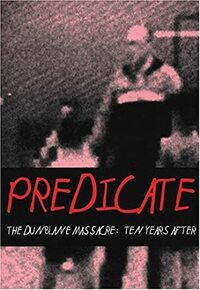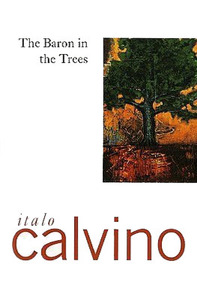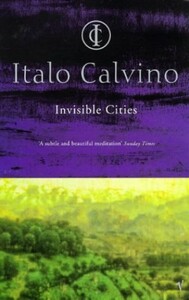Take a photo of a barcode or cover
screen_memory's Reviews (234)
The characters in Genet's Querelle, like the thieving prostituting criminal who wrote it, are almost all thieves and/or murderers (some dearly wish to become one), pimps or prostitutes. They are all deceptively young--one would think that, having read of the circumstances of their unlawful exploits, that they were much older than teenagers--and just about every one, including the police and a Navy lieutenant, are homosexual.
Genet's treatment of the bawdy young criminals leave us unable to condemn them. They are all beautiful, handsome. They are all angels, or saints. Their thefts and murders do not fulfill their beauty, they are necessitated by their beauty. In Genet's world, the beautiful are the unlawful, society's dejected, and the ruthlessly violent. And God are they all handsome. Like Mishima, Genet finds beauty in death and destruction. Just like Mishima's Mizoguchi is moved by his perverted conception of beauty to burn the temple of the golden pavilion, so too is Genet's Querelle coerced by his newfound love and affection for a teenager who, in a drunken rage, commits a senseless murder, to betray him. Querelle, a roughneck sailor, dreamed of meeting a man whose secret murders and thefts would endear the two newly acquainted criminals. He senses a potential for endearment to this teenager, Gil, who, following his senseless murder, has also been placed under suspicion for one of Querelle's murders that preceded it, sought refuge in an old abandoned prison where he spends the latter part of the book. The two share an intimate moment, their tongues caress one another's, and their lips indulge in those of their partners'. Despite the flowering of their intimacy, Querelle, after being sucked off in secret by the policeman, Mario, betrays the whereabouts of his friend.
Near the end of the story, Querelle's vessel is soon to take off from the city of Brest in which the entire narrative takes place. His brother, the madame of the brothel (whose relationship with Querelle's brother is compromised by an act of infidelity with Querelle), and all those the sailor became intimate with, are soon to be abandoned by Querelle who, through the power of the narrative's focus on the powerful sailor, and the youthful ardor which commands to develop a fondness for the roughhewn young kid in those he encounters, imbues them with purpose. With Querelle soon to leave, the other characters are slowly removed from their prior sphere of relevance. It is the magnificence of Querelle, despite (or perhaps because of) his murders and his crimes and his taste for young boys, that radiates an unconquerable sense of beauty onto all that he comes into contact with.
Genet's treatment of the bawdy young criminals leave us unable to condemn them. They are all beautiful, handsome. They are all angels, or saints. Their thefts and murders do not fulfill their beauty, they are necessitated by their beauty. In Genet's world, the beautiful are the unlawful, society's dejected, and the ruthlessly violent. And God are they all handsome. Like Mishima, Genet finds beauty in death and destruction. Just like Mishima's Mizoguchi is moved by his perverted conception of beauty to burn the temple of the golden pavilion, so too is Genet's Querelle coerced by his newfound love and affection for a teenager who, in a drunken rage, commits a senseless murder, to betray him. Querelle, a roughneck sailor, dreamed of meeting a man whose secret murders and thefts would endear the two newly acquainted criminals. He senses a potential for endearment to this teenager, Gil, who, following his senseless murder, has also been placed under suspicion for one of Querelle's murders that preceded it, sought refuge in an old abandoned prison where he spends the latter part of the book. The two share an intimate moment, their tongues caress one another's, and their lips indulge in those of their partners'. Despite the flowering of their intimacy, Querelle, after being sucked off in secret by the policeman, Mario, betrays the whereabouts of his friend.
Near the end of the story, Querelle's vessel is soon to take off from the city of Brest in which the entire narrative takes place. His brother, the madame of the brothel (whose relationship with Querelle's brother is compromised by an act of infidelity with Querelle), and all those the sailor became intimate with, are soon to be abandoned by Querelle who, through the power of the narrative's focus on the powerful sailor, and the youthful ardor which commands to develop a fondness for the roughhewn young kid in those he encounters, imbues them with purpose. With Querelle soon to leave, the other characters are slowly removed from their prior sphere of relevance. It is the magnificence of Querelle, despite (or perhaps because of) his murders and his crimes and his taste for young boys, that radiates an unconquerable sense of beauty onto all that he comes into contact with.
Eden Eden Eden? More like Boring Boring Boring.
Guyotat? More like Blahblahblah.
"...written...in a language of startling innovation," Foucault says. "Most original write alive," Stephen Barber says. Hey, cool, he invented a new lexicon. His language is refreshing and invigorating. Wow! But how is it handled?
I will say that Guyotat's prose has a way of delivering the reader into the immediacy of the action, but, dear God, it's nearly 160 pages of prostitutes and whores fucking, and in Eden's distinct style which becomes exhausting to read after a while (I won't post an excerpt here; search for an excerpt of the book online). There were a few pages of soldiers torturing an Algerian, busting open his face and sodomizing him with objects, that was both exhilarating and disturbing and produced just a faint intimation of sickness in my stomach--scenes like this being what I expected what with the novel taking place in Algeria during their civil war. But there is not one scene bearing any similitude to this one. It denigrates into Wazzag's, a male prostitute, misadventures with numerous whores and "drillers" with whom he has sex.
I would have been pleased had Eden met with a similar fate as Guyotat's Prostitution--only an excerpt has been translated into English, giving us some twenty-five pages of Guyotat's as-of-yet unpublished novel. Twenty to thirty pages would be plenty for what instead was an exhausting 180-page trudge through clumsy and disjointed perversion, made additionally difficult by the book's frustrating language.
The book is out of print and rather expensive, so anyone looking to get into Guyotat through this book may want to acquaint themselves with the style through the various excerpts online and determine whether or not you could negotiate with 180 pages of the shit. A good starting point for Guyotat? I'm not sure. I also dropped quite a bit on Tomb For 500,000 Soldiers which I will begin the day after this writing. After Prostitution and this book, I am praying Tomb makes up for the hefty price I paid for both it and Eden.
Guyotat? More like Blahblahblah.
"...written...in a language of startling innovation," Foucault says. "Most original write alive," Stephen Barber says. Hey, cool, he invented a new lexicon. His language is refreshing and invigorating. Wow! But how is it handled?
I will say that Guyotat's prose has a way of delivering the reader into the immediacy of the action, but, dear God, it's nearly 160 pages of prostitutes and whores fucking, and in Eden's distinct style which becomes exhausting to read after a while (I won't post an excerpt here; search for an excerpt of the book online). There were a few pages of soldiers torturing an Algerian, busting open his face and sodomizing him with objects, that was both exhilarating and disturbing and produced just a faint intimation of sickness in my stomach--scenes like this being what I expected what with the novel taking place in Algeria during their civil war. But there is not one scene bearing any similitude to this one. It denigrates into Wazzag's, a male prostitute, misadventures with numerous whores and "drillers" with whom he has sex.
I would have been pleased had Eden met with a similar fate as Guyotat's Prostitution--only an excerpt has been translated into English, giving us some twenty-five pages of Guyotat's as-of-yet unpublished novel. Twenty to thirty pages would be plenty for what instead was an exhausting 180-page trudge through clumsy and disjointed perversion, made additionally difficult by the book's frustrating language.
The book is out of print and rather expensive, so anyone looking to get into Guyotat through this book may want to acquaint themselves with the style through the various excerpts online and determine whether or not you could negotiate with 180 pages of the shit. A good starting point for Guyotat? I'm not sure. I also dropped quite a bit on Tomb For 500,000 Soldiers which I will begin the day after this writing. After Prostitution and this book, I am praying Tomb makes up for the hefty price I paid for both it and Eden.









